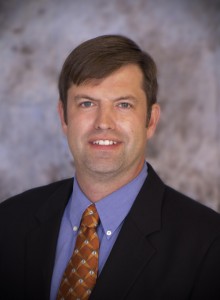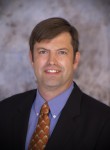 Greetings from Pierre. This week, I will provide an update on three bills I sponsored as well as an update on the Appropriation budget hearings.
Greetings from Pierre. This week, I will provide an update on three bills I sponsored as well as an update on the Appropriation budget hearings.
HB 1076 will allow townships to use an existing tax levy to support emergency medical services. The bill allows local government the flexibility to use property tax in a way that best serves local needs. Local government could create an ambulance district, but it would require a vote to increase taxes. This bill has passed through the House of Representatives and just passed Senate Taxation 7-0. It will be on the Senate floor on Monday.
HB 1154 will allow cities to extend municipal lease-purchase agreements to 20 years. Currently, these agreements are limited to 10 years. This bill will benefit communities that are considering a community center or similar projects that involve real estate improvement and construction. The lease-purchase agreement has several advantages over bonding. Bonding will have a slightly lower interest rate, but require significant investments in time and money to comply with regulatory debt restrictions. Municipal lease-purchase agreements do not require a bond election, underwriting fees or long term administration of the bond. This bill passed the House 67-0 and moves to the Senate.
Finally, HB 1155 will create an advisory board under the Department of Education to assist with the education of deaf and hard of hearing students. Since the South Dakota School for the Deaf closed its campus, deaf and hard of hearing students have been relocated to their local school districts. Outreach services provided by the School for the Deaf do not involve daily instruction and often do not involve interaction with the student. Due to the natural language barrier, a deaf student often struggles in a typical classroom. A deaf student often becomes isolated when he/she is unable to communicate with peers. The best example to illustrate this situation is to imagine a Spanish speaking student in an English speaking class without anyone to assist in translating classroom instruction. This board will be comprised of professionals, parents and representation from the department of education. The board will create benchmarks for students and resources for schools to assist in the education of deaf and hard of hearing students. The bill aims to reverse the trend of students with this disability graduating at an average 3rd to 4th grade reading level and improve post-secondary success. HB 1155 passed out of House Education 13-1.
In Appropriations, we heard budget requests from the Tech Schools and Department of Education. The department outlined 4 outcome goals: 1) All students enter the 4th grade proficient in reading; 2) All students enter the 9th grade proficient in reading; 3) Native American students will have increased academic success; 4) Students graduate high school ready for postsecondary or the workforce. These goals will be challenged by the governor’s recommendation for a zero inflationary increase to the per student allocation. The governor has also recommended a zero inflationary increase to teacher salary. This recommendation creates a paradox since, in 2016, the legislature passed the ½% percent sales specifically to increase teacher salaries in an attempt to stay competitive with surrounding states. The Appropriations Committee to this point has remained committed to finding additional money for education. We will do revenue projections this week and receive an economic forecast for the next fiscal year.
It will be important to hear from you during session. I would appreciate your input on any issue or concern. You may email me at dan.ahlers@sdlegislature.gov.










